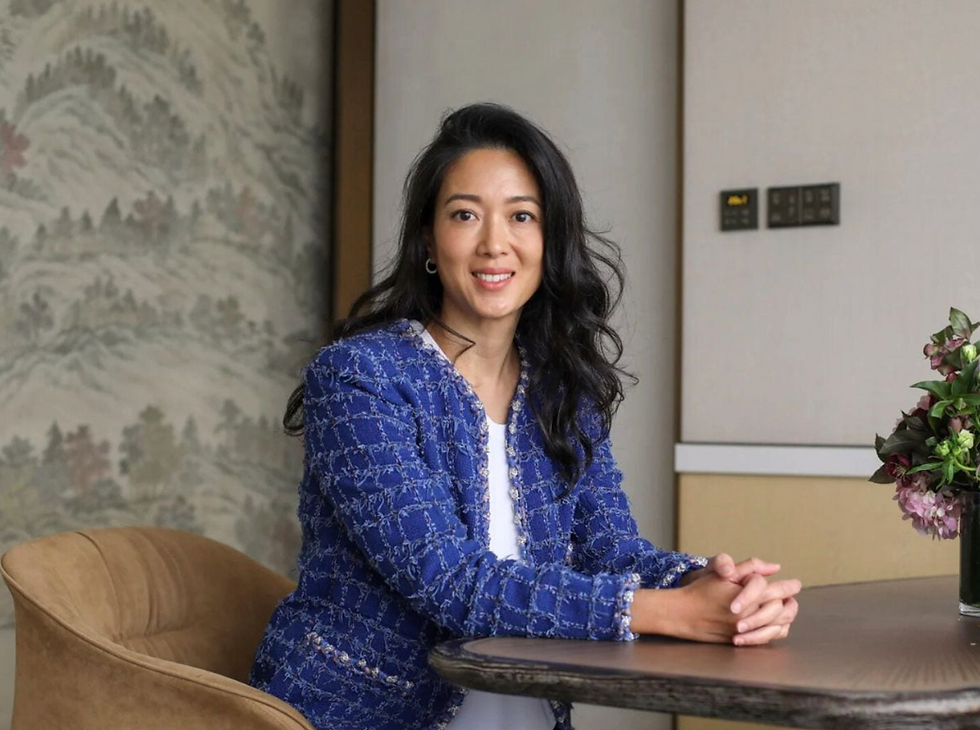Kuok Hui Kwong: The Quiet Force Behind Shangri-La’s New Era
- Tiffany Zang
- Jul 21, 2025
- 3 min read
In a region where legacy often overshadows leadership, Kuok Hui Kwong stands out — not for flamboyance, but for quiet authority. On August 1, she steps into the role of CEO of Shangri-La Asia, one of the most iconic hospitality groups in Asia, founded by her father, Malaysian tycoon Robert Kuok. But while her last name opens doors, it’s her discipline, intellect, and values that have kept them open.

From Harvard to the helm
Educated at Harvard University with a degree in East Asian Studies, Kuok’s path has always merged intellect with pragmatism. Long before assuming the top seat at Shangri-La, she led South China Morning Post Group as CEO and held board positions at Bangkok Post. Within Shangri-La, she’s been no stranger — an executive director since 2016, chairman since 2017 — her leadership already imprinted on the brand’s evolution.
Fortune magazine ranked her the 40th most powerful woman in Asia, but she rarely appears in glossy spreads or industry headlines. Her leadership isn’t performative — it’s structural. Shangri-La now operates more than 100 hotels across four brands, with 81 properties directly owned and a net asset value of over US$10.8 billion.
A personal stake in the future
Kuok doesn’t just lead Shangri-La — she owns it. Directly and indirectly, she controls 95.57 million shares, equating to roughly 2.7% of the group, and holds over 5% in one of its top shareholders, Kerry Group. She earns a monthly base salary of HK$576,000, but her value to the brand goes far beyond numbers.
Under her tenure, the group has weathered financial and staffing challenges — with grace. During Covid-19, she insisted the company retain as many staff as possible. “We laid off the least number of people in the industry,” she once said. That decision cost the company more in the short term — but built loyalty that can’t be measured on a balance sheet.
Sustainability beyond PR
On Chinese social media platform Xiaohongshu, Kuok quietly reveals a different side — environmentally conscious, humble, and surprisingly relatable. She brings glass containers to restaurants, avoids single-use plastics, and hikes with a reusable bottle in hand.
“The rate of our product consumption keeps increasing,” she wrote. “At this rate, we might need to find a new planet to live on.”
It’s a rare moment of candor from someone born into a business empire — but it’s also exactly why her leadership feels contemporary. She isn’t positioning Shangri-La as just another luxury hotel brand; she’s grounding it in responsibility.
Rooted in family, not just fortune
Kuok is the sixth of eight children of Robert Kuok, who, at 100 years old, remains Malaysia’s wealthiest individual with a net worth of US$11.4 billion. But her most cherished inheritance isn’t financial — it’s emotional.
She speaks warmly about her childhood and the quiet presence of her parents. “What children need is your company and the time you spend with them,” she says. Married to Bryan Gaw with three children, she now works to pass that same legacy of presence and attentiveness to the next generation.
One of her favorite memories with her father? A taxi ride in New York where his sincerity was so disarming that the cab driver refused payment. “One of his best traits,” she says, “is how sincere he is to others.”
That sincerity — inherited, lived, and extended — may just be the most luxurious value Kuok Hui Kwong brings to Shangri-La.










Comments